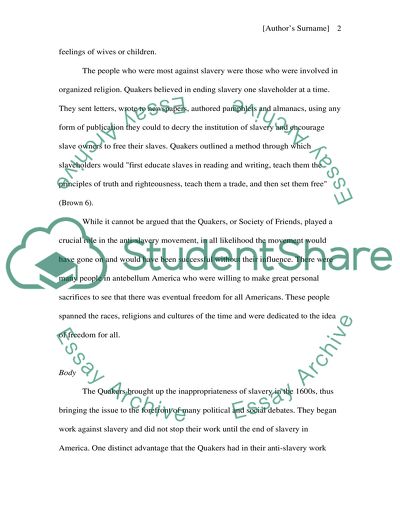Cite this document
(“Quakers' Contribution in Anti-Slavery Movement Research Paper”, n.d.)
Retrieved from https://studentshare.org/law/1392958-undecided
Retrieved from https://studentshare.org/law/1392958-undecided
(Quakers' Contribution in Anti-Slavery Movement Research Paper)
https://studentshare.org/law/1392958-undecided.
https://studentshare.org/law/1392958-undecided.
“Quakers' Contribution in Anti-Slavery Movement Research Paper”, n.d. https://studentshare.org/law/1392958-undecided.


